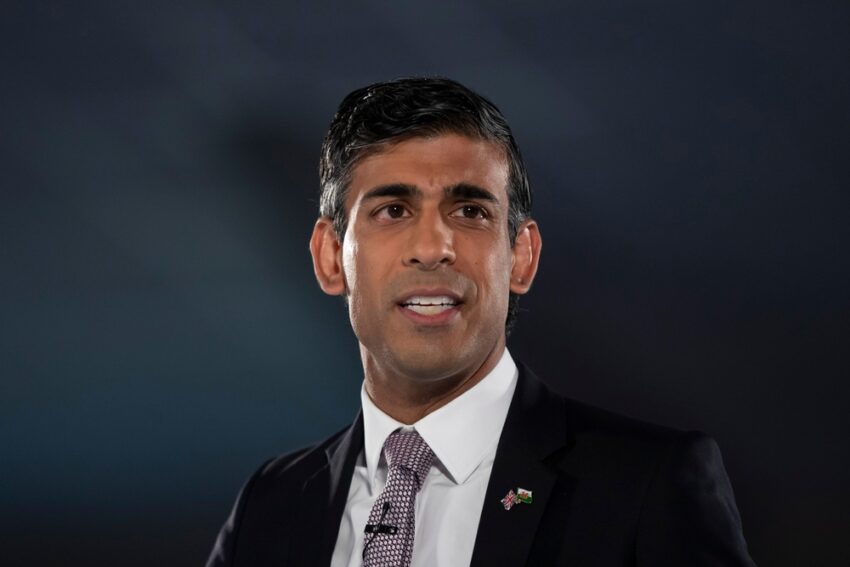Rishi Sunak will seek to build a stronger defence with Japan amid fears of China’s rising militarisation as he travels to Tokyo and Hiroshima for the G7 summit.
The prime minister will be accompanied by his wife, Akshata Murty, on their first official visit since he entered No 10 for the meeting of leaders from the US, France, Germany, Canada, Japan, Italy and the EU.
Sunak is expected to unveil the Hiroshima accord, an agreement with Japan aimed at stepping up defence cooperation and improving supply chains, when he meets the prime minister, Fumio Kishida, in Tokyo.
A core element of their discussions will be ensuring the supply of semiconductors – a crucial part of laptops, smartphones, cars, TVs and many medical devices – as most are made in Taiwan. China sees Taiwan as part of its territory and has been conducting military exercises in the area. The US has warned a Chinese invasion of Taiwan would affect “literally every country on earth” owing to its central role in semiconductor production.
Before the G7 addresses global security, the UK and Japan will sign a “semiconductor partnership” aimed at trying to improve domestic production in their countries, and pledging to exchange skills and pursue new developments. The UK government is preparing a £1bn semiconductor strategy aimed at bolstering resilience in the face of threats to the supply chain.
Sunak is also likely to have one-on-one meetings with the French president, Emmanuel Macon, and the Indian prime minister, Narendra Modi. However, No 10 is not expecting Sunak to meet bilaterally with the American president, Joe Biden, whose trip to Asia for the summit is being curtailed over uncertainty surrounding the US debt ceiling.
Washington has taken a harder line against Beijing than some European countries, with Macron saying last month Europe should not get “caught up in crises that are not ours”.
During the four-day trip, Sunak will focus on defence and security, including shoring up international support for Ukraine in the war against Russia. He will also say the UK is building defence ties with Japan, which is deeply uneasy over China’s belligerent stance towards Taiwan.
He will visit a naval base and confirm new UK-Japan defence cooperation, including doubling UK troop numbers in future joint exercises, a new cyber partnership, and committing to deploy the carrier strike group – a Royal Navy unit – to the Indo-Pacific in 2025. The two countries are also signing an agreement to consult each other on regional and global security issues and consider measures in response.
The summit comes as the former UK prime minister Liz Truss attempted to intervene in foreign policy by visiting Taiwan on Wednesday, where she called on Sunak to declare Beijing a threat to national security. The trip has drawn condemnation as a “dangerous political stunt” by the Chinese embassy in London.
A UK government spokesperson said it was in Britain’s interests to “continue engagement” with China while recognising the challenges the country presents, adding: “We have always been clear that China remains the biggest state-based threat to the UK’s economic security. That’s why our integrated review refresh sets out a new approach to dealing with the challenge which China presents for the UK and the wider world.”
During his trip to Japan, Sunak’s other priority will be the UK economy, with plans to meet businesses including Hitachi, Nissan and Toshiba at a reception where he will underline billions of pounds of job-creating investments in the UK by Japanese firms. He will be accompanied by UK businesses including Octopus Energy, one of the UK’s main utility suppliers.
Sunak and the Japanese prime minister will present a set of science and technology programmes, including a strategic relationship between Imperial College London and the University of Tokyo and collaborations on renewable energy.
Before his visit to Hiroshima, the first trip to the city by a UK prime minister, Sunak said the two countries were “closely aligned on the importance of protecting peace and security in the Indo-Pacific and defending our values, including free and fair trade”.
Sunak said: “The Hiroshima accord will see us step up cooperation between our armed forces, grow our economies together and develop our world-leading science and technology expertise. It marks an exciting next phase in the UK and Japan’s flourishing partnership.”


